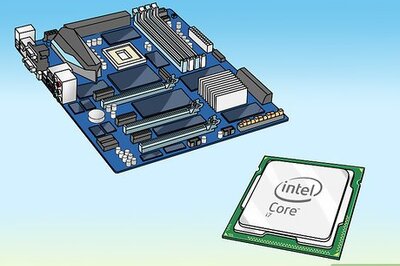
views
In order to bring more people online, Facebook has unveiled new initiatives to upgrade existing networks for the future, build new networks in under-connected regions and leverage new technologies. The initiatives, announced at the Mobile World Congress (MWC) here, include partnerships to support Terragraph -- a millimeter-wave, multi-node wireless backhaul system optimised to bring high-speed internet connectivity to dense urban areas.
Also read: Samsung Galaxy S9, S9+ to Launch in India on March 6, Expected Price Rs 60,000
Facebook announced that Terragraph will be deployed for field trials in two locations serving customer traffic. "We also are announcing new partner trials for OpenCellular, a low-power base station optimised for rural and traditionally underdeveloped regions of the world," Jay Parikh, head of infrastructure and engineering at Facebook, wrote in a blog post on Tuesday.
Also read: Apple Gets Nod For Dual Display Device
In addition, the Telecom Infra Project (TIP) -- launched two years ago by Facebook and a number of industry partners to collaborate on new technologies to accelerate the pace of innovation in network infrastructure and to bring more people online -- has grown to more than 500 companies and also is announcing new progress from project groups.
"Facebook remains committed to working closely with the telecommunications ecosystem to help connect the 3.8 billion people who are not yet online and improve the experiences of those already connected," Parikh said. Facebook and Telefonica announced the completion of initial deployments of high-speed mobile internet to tens of thousands of Peruvians across the highlands and in the Amazonian Rainforest.
"We are announcing a joint trial with BT, Nokia and Cavium to demonstrate interoperability between the OpenCellular platform and the Nokia community hosted network, enabling cloud-based remote auto-connection, configuration and monitoring of the Open Cellular base station," Parikh noted.
Also Watch: Huawei MateBook X Pro First Look at MWC 2018



















Comments
0 comment